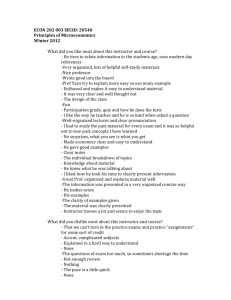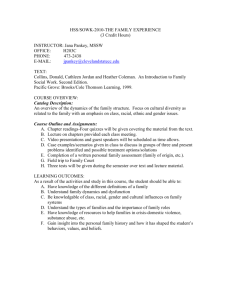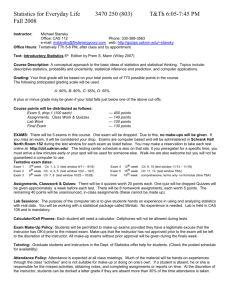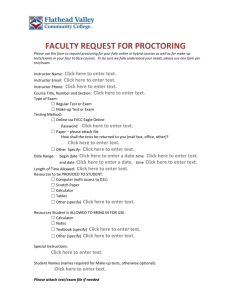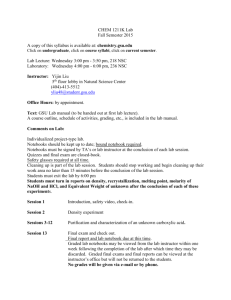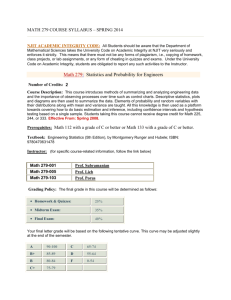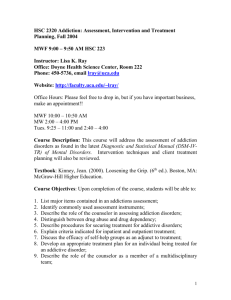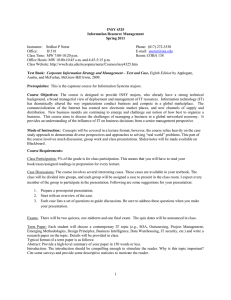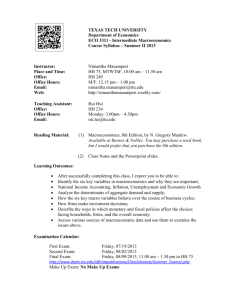Criminal Justice
advertisement
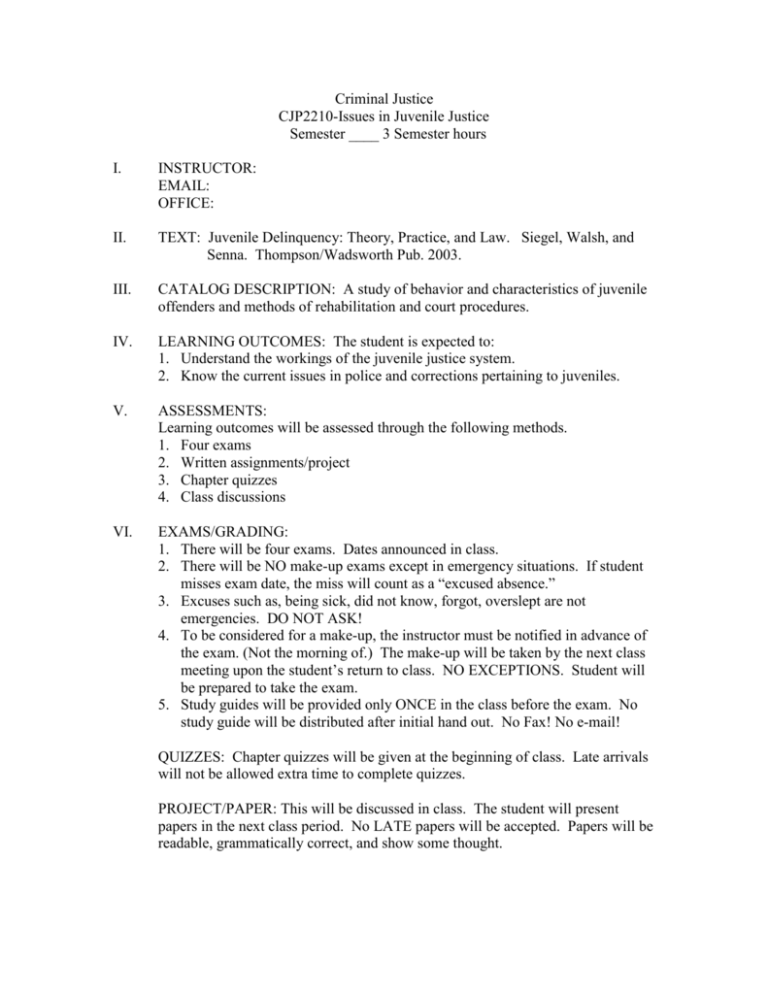
Criminal Justice CJP2210-Issues in Juvenile Justice Semester ____ 3 Semester hours I. INSTRUCTOR: EMAIL: OFFICE: II. TEXT: Juvenile Delinquency: Theory, Practice, and Law. Siegel, Walsh, and Senna. Thompson/Wadsworth Pub. 2003. III. CATALOG DESCRIPTION: A study of behavior and characteristics of juvenile offenders and methods of rehabilitation and court procedures. IV. LEARNING OUTCOMES: The student is expected to: 1. Understand the workings of the juvenile justice system. 2. Know the current issues in police and corrections pertaining to juveniles. V. ASSESSMENTS: Learning outcomes will be assessed through the following methods. 1. Four exams 2. Written assignments/project 3. Chapter quizzes 4. Class discussions VI. EXAMS/GRADING: 1. There will be four exams. Dates announced in class. 2. There will be NO make-up exams except in emergency situations. If student misses exam date, the miss will count as a “excused absence.” 3. Excuses such as, being sick, did not know, forgot, overslept are not emergencies. DO NOT ASK! 4. To be considered for a make-up, the instructor must be notified in advance of the exam. (Not the morning of.) The make-up will be taken by the next class meeting upon the student’s return to class. NO EXCEPTIONS. Student will be prepared to take the exam. 5. Study guides will be provided only ONCE in the class before the exam. No study guide will be distributed after initial hand out. No Fax! No e-mail! QUIZZES: Chapter quizzes will be given at the beginning of class. Late arrivals will not be allowed extra time to complete quizzes. PROJECT/PAPER: This will be discussed in class. The student will present papers in the next class period. No LATE papers will be accepted. Papers will be readable, grammatically correct, and show some thought. GRADING 91-100 = A 81-90 = B 71-80 = C 61-70 = D Below 61 = F PAPERS 5 pts ea. QUIZZES 3 pts. VII. ATTENDANCE POLICY: Student is expected to attend class. However, two absences will be allowed, except on exam date. After the second absence, two points for each absence will be deducted from final grade. (Instructor’s discretion). Three tardy marks will constitute one absence. VIII. DROPS/WITHDRAWALS: Drops and withdrawals are not automatic. If dropping is necessary, student is to contact Admissions/Records Office. The instructor cannot drop or withdraw a student. This is the student’s responsibility. Failure to drop from a class will result in a grade of “F”. (CSTCC students are contact CSCC’s Records Office, or the instructor of this class. Adjunct faculty is not responsible for dropping a student) IX. DISABILITY STATEMENT: If, because of a documented disability, you require assistance or reasonable accommodations to complete assigned course work (such as modifications in testing, readers, special equipment, etc.) you must register with Disability Support Service and notify your instructor within the first two weeks of the semester. Disability Support is located in the Office of Student Development & Testing. (U118, 423-478-6217 or 472-7141) X. ACADEMIC INTEGRITY: Cleveland State students are required, as a condition of good standing and continue enrollment, to conduct themselves properly in class. Such proper behavior includes academic honesty, civility and respect for others and private property. Please refer to the student handbook portion of the catalog for further information. XI. Cell phones and beepers are not allowed in class. TURN THEM OFF before class begins. Permission WILL NOT be given to leave class to answer. If you leave class, or respond to a call in class, you will be marked absent for the class.

